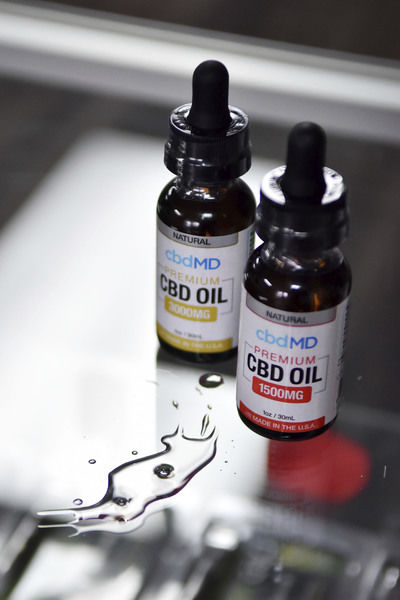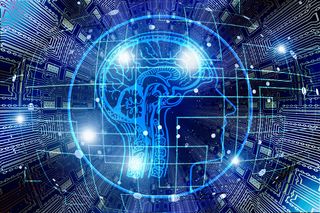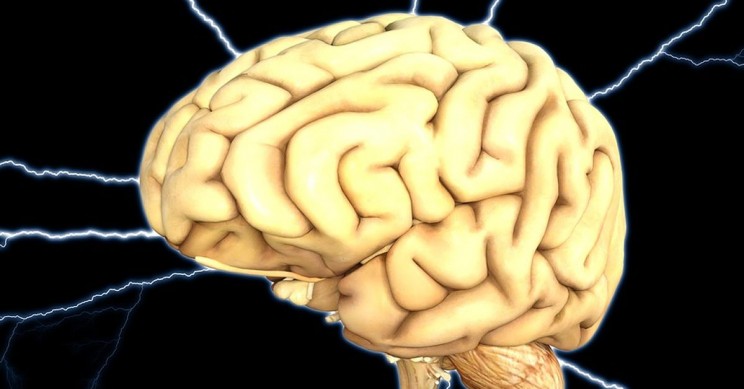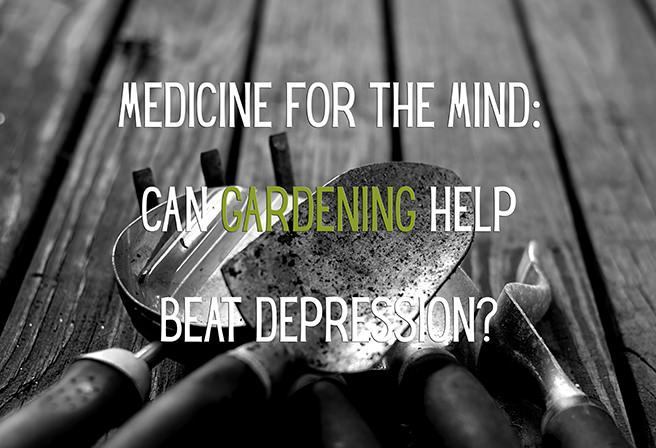Nature Knows and Psionic Success
God provides
Travis Lemon: Bacopa offers promise for brain health

A small and rather delicate looking flowering plant by the name of bacopa has been used for thousands of years in India to enhance memory, amongst other things. Bacopa supplements are quickly gaining shelf space in the aisles of American health food stores and are the focus of quite a few promising clinical studies. Considered by many in the health and wellness industry to be the best adaptogenic, or adrenal supporting, herb for promoting clarity and focus, one could begin to see the importance that a high-quality bacopa extract could have in supporting healthy cognitive function. Data from the Journal of Ethnopharmacology suggests that bacopa "inhibits enzymes associated with inflammation of the brain." A randomized double-blind placebo controlled study with sixty elderly subjects published by the National Institutes of Health concluded that bacopa could improve attention, cognitive processing and working memory. Bacopa may also be beneficial in supporting healthy blood pressure levels as well as supporting healthy stress response due to its adaptogenic qualities. Many prefer to take bacopa in capsule form, but it can also be found in tea, liquid and powder as well as in combination with other adrenal or brain supporting supplements. Look for a supplement containing around 300 milligrams of bacopa extract to be taken once or twice daily. Be leery of supplements that make bold medical claims and instead stick with quality brands that can guarantee the purity of their finished product. Bacopa has been in my herbal supplement regimen for years, and I have no plans to let it go. With all of the new, exciting data we are seeing on this ancient herb, it might be a good fit for your supplement regimen as well. Travis Lemon is a certified herbalist and co-owner of Tulsi at The Market in Huntington. He has […]
Understanding the basics of the cannabis plant

Photos by Chris Jackson/The Register-HeraldA variety of CBD products available. People are talking about the benefits of CBD. After hearing about CBD on the news or from a friend, you may be interested in learning more. CBD Distributors would like to provide you with the basics to get started. What is CBD? CBD, short for cannabidiol, is found in the cannabis plant. Cannabis is a plant category that includes hemp and marijuana, which means you can get CBD from both hemp and marijuana. CBD isn’t the only cannabinoid found in cannabis; in fact, over 100 cannabinoids have been discovered so far. We are focused on the CBD that comes from hemp: a plant that has been used for centuries by many cultures and does not give a “high.” Who can benefit from taking CBD? CBD is an all-natural product that helps maintain overall health. Research on the potential health benefits of cbd oil is ongoing, so new therapeutic uses for this natural remedy are sure to be discovered. In short, everyone can benefit. What is the endocannabinoid system? We are “hardwired” with a master control system called the Endocannabinoid System (ECS). The ECS is made up of cell receptors that act as messengers, giving your body specific directions on what to do. Some of these messengers are located in the brain and spinal cord. Others are located in immune cells, the gastrointestinal tract and everything outside the brain and spinal cord. The diversity of receptor locations shows just how important they are for day-to-day bodily functions. The ECS helps in regulating: Anxiety, appetite, depression, digestion, immune function, memory, mood, motor control, pain, pleasure and reward, reproduction and fertility, sleep and even temperature regulation. Endocannabinoids are the chemical messengers that tell your body to get these processes moving and when […]
Zapping One Brain Area May Selectively Improve Memory Recall

Source: Pixabay Researchers at UCLA have pinpointed a specific part of the prefrontal cortex that may be key for retrieving memories . One mild electrical "zap" to the left rostrolateral prefrontal cortex (RLPFC) using non-invasive transcranial direct current stimulation (tDCS) significantly improved episodic memory source retrieval performance in a recent study, they reported. The researchers speculate that the left RLPFC plays a crucial role in cognitive functions that support episodic memory. These findings ( Westphal et al., 2019 ) were published online ahead of print on May 6 in the Journal of Cognitive Neuroscience . "We found dramatically improved memory performance when we increased the excitability of this region," the study’s senior author, Jesse Rissman , a UCLA assistant professor of psychology, psychiatry and biobehavioral sciences, said in a press release. "The left rostrolateral prefrontal cortex is important for high-level thought, including monitoring and integrating information processed in other areas of the brain. We think this brain area is particularly important in accessing knowledge that you formed in the past and in making decisions about it." Are There Different Non-Invasive Transcranial Brain Stimulation Techniques? Multiple non-invasive transcranial stimulation techniques use weak, low-voltage electrical currents to zap targeted brain areas through the skull in controlled laboratory environments. (Note: Do not try this at home! ) Some of the most widely studied methods of transcranial electrical stimulation (tES) include Transcranial Direct Current Stimulation (tDCS), Transcranial Alternating Current Stimulation (tACS), Transcranial Pulsed Current Stimulation (tPCS), and Transcranial Random Noise Stimulation (tRNS). Another recent brain stimulation study ( Herpich et al. 2019 ) found that just 10 days of visual training coupled with transcranial random noise stimulation (tRNS) targeting the visual cortex resulted in improvements in visual motion perception. (See " Brain Stimulation May Improve Visual Learning .") How Does Zapping the Brain […]
Having a Hard Time With the Keto Diet? One Change Will Make a Huge Difference

We’ve all heard the incredible success stories: Over the past several years, the keto diet has emerged as the surest, tastiest, most popular path to slimming down and boosting overall health — and fast. “After just a few days, you start incinerating the stubborn love handles and belly fat you’ve tried to get rid of for years,” promises clinical nutritionist Josh Axe, DNM, author of Keto Diet. But for far too many people, sticking to the plan is easier said than done: Women feel hungry, tired, achy, and generally blah after just a few days on the popular plan. So what gives? A big part of the struggle, Dr. Axe asserts, is that most women simply don’t get enough of what he calls “the most under-appreciated nutrient out there.” That nutrient is called collagen . About 30 percent of the human body — including the bones, muscles, skin, and tendons — is made of this protein-rich compound. “Collagen plays a major structural role in building skin and connective tissues,” explains Taz Bhatia, MD, an integrative medicine physician and author of Super Woman Rx. It’s also crucial for repairing cellular damage and building healthy new cells to keep metabolism humming. “You need it to help you keep feeling strong, healthy and youthful,” says Dr. Axe. But the body’s production of collagen declines as we age. “Once you’re 30, your body’s collagen production drops by as much as eight percent every year.” As a result, we begin to develop wrinkles, sagging skin, and creaky joints — and it’s harder for our cells to make the switch from burning sugar as their main source of fuel to burning protein and fat, as they do on a keto diet. This puts stress on the body and leads to the “hangry,” headachy side effects […]
Dubuque chorus brings music to those losing their memory

DUBUQUE, Iowa (AP) — For Joel Gorun, music had been a lifelong source of joy, with sweet melodies that waxed nostalgic memories of days gone by. He found a particular passion for singing and took advantage of every opportunity he could to lift his tenor voice among fellow choristers in the Dubuque Chorale, the Music Men A Cappella Barbershop Chorus and at local churches. So when Joel began suffering from memory loss last summer, he knew that with a diagnosis came an opportunity. Long touted for its benefits beyond enjoyment, music has been shown to activate regions of the brain spared by Alzheimer’s, as well as preserve what is known as "musical memory" (the brain’s ability to recognize familiar music), alter functional connectivity and improve overall health. "For him, he recognized the importance of music altogether, but he knew the benefits it could have for people suffering from dementia," Joel’s wife, Marilyn, told the Telegraph Herald. "And because music was so much a part of his life, he felt the need to contribute somehow." Before his death in March at age 77, Joel became the impetus behind the Northeast Iowa School of Music’s Healing Harmonies Chorus, an ensemble with an eye toward providing an outlet for non-care-center Alzheimer’s disease patients in the tri-states, along with their caregivers. Thanks to Tracey Rush, Northeast Iowa School of Music founder, a part of Joel remains with the ensemble, which recently began its weekly rehearsals. In 2018, after Gorun had approached Rush with the idea for the group, Rush had been selected in a competitive process to participate in the National Guild’s Catalyzing Creative Aging program, an initiative designed to support new creative aging programs at nonprofit arts education organizations nationwide. Through that support, Rush was able to help see Joel’s dream through. […]
One Thing That You Can Do Right Now To Make Your Next Speech Extraordinary (No Practice Involved)

There’s no lack of advice on how to be a more effective speaker. You can quickly come up with hundreds of columns on the topic if you search the inc.com library for "public speaking." However, much of the advice that’s out there focuses on helping you to develop skills that simply may not feel natural or comfortable to you. The intent is to "transform" you into a speaker . Following a well-defined set of guidelines may help you to overcome a fear of public speaking, but it will do little, if anything, to help you truly feel comfortable on stage and ultimately to better connect with an audience. While I deliver 30-50 keynotes around the globe yearly in front of audiences of hundreds and sometimes thousands, my journey to achieve mastery has been a long one. I’ve been speaking in front of audience for nearly 40 years now and I can honestly say that it’s only in the last decade that I’ve truly found my own voice, a voice that I am imminently comfortable with. What I’ve discovered during my four-decade public speaking journey is that ultimately the only skin any of us are comfortable in is our own. Trying to adopt the mannerisms or intonation, much less the personality, of someone you consider to be a great speaker, is absolute folly. You also do not need to transform yourself at all. You are who you are; that’s the most effective person you can be, the one who people connect to genuinely and authentically, and the one that you’ll be most comfortable being on any stage. "It’s a ridiculously simple mannerism and one that we all use daily, yet it’s magic on stage and it will instantly connect you to an audience, while it calms your inner critic; you […]
3 Ways to Stop Brain Fog Before It Starts

Exposure to electromagnetic fields from cellphones, computers, and other gadgets is causing an epidemic of brain fog and tiredness among women. Here’s help! Getting directions, scheduling book club, unwinding with a game… our cellphones become more important all the time. That’s why new research from Switzerland is so alarming: Scientists report that cellphone radiation can negatively impact memory, reducing recall by 22 percent. What’s more, further studies reveal that frequent exposure to electromagnetic fields (EMFs) emitted by cellphones and other common electronics can increase concerns such as headaches, fatigue, and anxiety by up to 38 percent. “EMFs not only interfere with the electrical impulses cells use to communicate, they also create unstable molecules that damage cells,” explains Ann Louise Gittleman, PhD, author of Zapped ( $11.96, Amazon ). And as Dianna Hoppe, MD, a women’s health expert based in Encinata, California, points out, “EMFs also increase levels of the stress hormone cortisol , which can trigger brain fog and sleep problems.” Luckily, it’s easy to outwit common EMF hazards to enhance energy and mental clarity once you know where they lurk. In the bedroom: Move your bed. EMFs emitted by cellphones and electrical outlets impair the production of the sleep hormone melatonin and dull the body’s ability to slip into restorative sleep. “That’s worrisome because the brain clears itself of toxins during sleep, and impairments can lead to brain fog,” says Gittleman. “Plus, melatonin has an antioxidant action that defends cells against EMF damage.” To slash exposure, she advises placing your phone at least six feet from your bed and switching it to airplane mode, which blunts its ability to send and receive electromagnetic signals. And move your bed so its head is three feet from any outlets in use since they produce stronger electrical fields than vacant outlets. […]
LED Devices Could Increase Memory Retention In Astronauts

LEDs and brain function Max Pixel A Bioengineering professor at the Univesity of Texas in Arlington has been commissioned to investigate the possibility of using LEDs to improve memory and cognitive function in astronauts whilst on space missions. The idea is to use directed light from LEDs to literally, and metaphorically, illuminate their brains. The Professor, Hanli Liu , is a co-primary investigator of an $800,000 NASA grant and believes it could be successful. The other co-primary investigator is Jacek Dmochowski, assistant professor of bioengineering at the City College of New York. The premise is to use light-based technology to increase the activity of mitochondria in brain cells to improve astronaut cognitive function whilst in space. What are they trying to achieve? Professor Hanli Liu has spent most of her career researching how lasers delivering near-infrared light to detect human brain defects like traumatic brain damage and PTSD. This research has recently been expanded to include research into how the same technique could be used to provide the possibility of non-invasive means of improving cognitive function. She has managed to discover that the technique appears to be able to boost mitochondria activity in brain cells . Being able to have this effect on Mitochondria, being the power plants of all Eukaryotic cells , would result in increased cerebral metabolism resulting in a useful technique to mitigate memory loss. Clearly, lasers are a little unwieldy and unpractical for such a purpose on space missions. And that’s where the purpose of the new NASA grant comes into play. If the technique could be adapted to use LEDs, rather than lasers, as the delivery system it might have great utility during space missions. More specifically, it is Lui’s mission to find the specific wavelength range and duration necessary to achieve a similar […]
Herbal Medicine Benefits & the Top Medicinal Herbs More People Are Using

Assorted hanging herbs ,parsley ,oregano,mint,sage,rosemary,sweet basil,holy basil, and thyme for seasoning concept on rustic old wooden background. Did you know that about 25 percent of the drugs prescribed worldwide are derived from plants? Of the 252 drugs in the World Health Organization’s essential medicine list, 11 percent are exclusive of plant origin. In fact, about 200 years ago the first pharmacological compound, morphine , was produced from opium extracted from the seed pods of the poppy flower. Since then, scientists have been studying plants to create the pharmaceutical products we know today. But after years of overmedicating, facing resistant bacteria in the microbiome and treating the illness rather than the root of the problem, people are beginning to pay more attention to natural, herbal medicine. Millions of dollars have recently been invested in looking for promising medicinal herbs. These substantial research investments in traditional herbal medicine are still relatively modest when compared to the overall pharmaceutical industry, but it proves that researchers are beginning to steer away from conventional drug development and look toward more alternative and natural forms of treatment. Natural plant products have been used throughout human history for various purposes. In fact, written records of the use of herbal medicine date back more than 5,000 years, and for much of history, herbal medicine was the only medicine. Today, plants are being used to treat a number of health concerns and conditions, including allergies, arthritis, migraines, fatigue, skin infections, wounds, burns, gastrointestinal issues, and even cancer — proving that it’s true that food is medicine. These herbs are less expensive and they’re a safer means of treatment than conventional medications , which is why so many people are choosing to go back to this traditional idea of medicine. What Is Herbal Medicine? Herbal medicines are naturally occurring, […]
DLPA (DL-phenylalanine) Benefits, Side Effects & Dosage

Flip and mix molecules of phenylalanine, and you’ll get DPLA: an amino acid mixture with surprising features. It may help you overcome depression, chronic pain, and the inability to focus. Read on to see if DLPA is for you and how to take it. https://commons.wikimedia.org/wiki/File:Phenylalanin(L-und_D-Phenylalanin)_V1.png DLPA (DL-phenylalanine) is a nutritional supplement with 2 different forms of phenylalanine in equal amounts: D- and L-phenylalanine. As you can see in the image above, they are “mirror images” of the same amino acid oriented differently in space [ 1 ]. L-phenylalanine is the active form in the human body; it builds proteins, neurotransmitters, and other crucial molecules. It’s an essential amino acid , which means we need to get it from foods such as eggs, meat, soy, nuts, and dairy [ 2 , 3 ]. D-phenylalanine is the synthetic form made in the lab. Although our bodies can’t use it as a building block, it produces specific health effects [ 4 , 5 ]. People take DLPA to boost energy, manage pain, balance mood, and more. Let’s see what the science and clinical evidence say about this supplement… May help with depression May reduce pain May boost mental clarity Not well studied in humans Dangerous for people with phenylketonuria L-phenylalanine builds neurotransmitters such as dopamine and noradrenaline that control mood, mental health, heart rate , and other vital functions. As a supplement, it may help with [ 6 , 7 , 8 , 9 , 10 ]: Your body converts about ⅓ of D-phenylalanine into the L-form, while the rest has unique effects. Supplementation with D-phenylalanine can increase your natural opioids , enkephalins , and soothes inflammation. It may help with [ 4 , 11 , 12 , 13 ]: In theory, DLPA should deliver the combined health benefits of both forms […]
H is for Home Harbinger

Medicine for the mind: can gardening help beat depression? If you’re feeling depressed and under pressure, you’re not alone. Nearly a fifth of adults in the UK experience depression or anxiety. That statistic is according to the Office for National Statistics (ONS), which also states that more women report that they suffer from the conditions than men. With over-thinking and major life events such as family bereavement, leading to depression; anyone can be at risk of the illness. However, certain genetic variations may make some more prone to the condition than others. While many are prescribed anti-depressants to help cope with depression by acting as a ‘mood enhancer’, they don’t work for everyone. But, can gardening help us battle depression? Many believe so, with reports suggesting 87% of people who garden for more than six hours per week feel happier . But why and how is this the case? Child shelling green beans Suffering from depression can drain you of all your confidence, so gardening as a family can be a great way in which to socialise within your comfort zone. Most kids love the garden – and spending time with you – so by creating fun tasks to improve your garden, they’ll instinctively have fun which will help lift your spirits. Why not try to grow a batch of dahlias with your little ones? Certain friendly bacteria that’s found in soil can also work in a similar way to anti-depressants by boosting the immune system, according to scientists . Someone wearing gardening gloves handing over a bowl of tomatoes Why not try to grow your own vegetables? It’s believed that producing your own food can help you reconnect with our planet, its seasons and rhythms. Not only this, but tending to your crops will provide enough light exercise […]
5 Things You Might Not Know About CBD

WN Lifestyle Home – Health Originally posted on https://intrinsichemp.com/5-things-you-might-not-know-about-cbd/ If you have even a passing interest in natural or alternative remedies for common medical conditions, you’ve probably noticed that CBD… Originally posted on https://intrinsichemp.com/5-things-you-might-not-know-about-cbd/ If you have even a passing interest in natural or alternative remedies for common medical conditions, you’ve probably noticed that CBD has become a major topic of conversation, research, and speculation in recent years. This natural compound derived from the hemp plant has skyrocketed into the spotlight as a potential treatment for a vast array of medical concerns, ranging from anxiety and ADHD to asthma, arthritis, and even some types of cancer. Researchers are learning new things about CBD every day, and there’s a long way to go in understanding the enormous potential of this beneficial compound. But if you’re new to the world of CBD, you’ll want to start with the basics. Here are five essential things to know about CBD. CBD is the best-known cannabinoid, but there are many others Let’s begin with some basic facts that provide a broad understanding of CBD. CBD is a cannabinoid, a naturally occurring chemical compound found in the cannabis or hemp plant. Israeli scientists first discovered cannabinoids in the 1960s, and they’re the compounds responsible for the many medicinal effects of cannabis—which we’ll cover shortly. CBD, an abbreviation for cannabidiol, is the best known of the cannabinoid compounds. It’s also the most extensively researched, thanks to its wide-ranging benefits for conditions including inflammation, chronic pain, and anxiety. However, scientists have discovered over 110 different cannabinoids and more are likely to be discovered in the future. Each cannabinoid compound has unique medical effects; some are powerful sedatives, some help with symptoms of nausea and vomiting, some provide pain relief, and some have even been studied for their […]
Brain Fog: Potential Causes and Treatment
"Where did I leave my keys?" "Why did I come into this room?" "Why can’t I seem to keep my thoughts together?" If you’ve ever experienced any of these moments, you’re not alone. And though such mental lapses are sometimes jokingly called "senior moments," they don’t only happen in older adults. Anyone can experience a momentary lapse in cognition or mental capacity, and in some cases, a lingering sensation of fuzziness can develop. Anytime you experience such a sensation, particularly if it’s ongoing, is pervasive or worsens, it may be an indication that you’ve had an encounter with an amorphous symptom called brain fog. What Is Brain Fog? Brain fog is not a condition in itself, but "is very likely to be a sign or symptom of another issue," says Dr. Freda C. Lewis-Hall, chief patient officer at Pfizer and co-editor of the book "Psychiatric Illness in Women: Emerging Treatments and Research." People who experience brain fog often describe it as a sense of confusion or disorganization, disorientation or feeling scattered. A diminished ability to react and difficulty thinking, expressing your thoughts or thinking through complex situations or calculations can all be considered brain fog. Dr. Emily Huang, physical medicine and rehabilitation specialist with Santa Clara Valley Medical Center in San Jose, California, says that "while the term ‘brain fog’ is not a phrase we use medically to define a specific condition, the term can be used to describe an experience associated with mental fatigue, memory issues and decreased focus throughout the day." Laura Boxley, director of clinical neuropsychology training in the department of psychiatry and behavioral health at The Ohio State University Wexner Medical Center , says that patients who are experiencing brain fog describe it as "not being as mentally sharp or having a slower processing speed, […]
Childhood trauma impacts brain development, accelerates puberty

Washington D.C. [USA], May 31 (ANI): While childhood is associated with making good memories, but for some, it is not the same. A new study reveals that children who grow up in poverty and face adversities are more likely to suffer impacts on brain development and behaviour. The study published in the journal JAMA Psychiatry, also indicates that these sufferings are also linked to accelerated puberty and brain maturation, abnormal brain development, and greater mental health disorders. "The findings underscore the need to pay attention to the environment in which the child grows. Poverty and trauma have strong associations with behaviour and brain development, and the effects are much more pervasive than previously believed," said lead author Raquel E. Gur. Researchers in the study compared the effects of poverty (L-SES) to those who experienced traumatic stressful events. The study incorporated 9,498 participants aged 8 to 21 years and found specific associations of socioeconomic status and traumatic stressful events with psychiatric symptoms, cognitive performance, and several brain structure abnormalities. The findings revealed that poverty was associated with a small elevation in the severity of psychiatric symptoms, including mood/anxiety, phobias, externalizing behaviour (oppositional-defiant, conduct disorder, ADHD), and psychosis, as compared to individuals who did not experience poverty. It was startling to note that the magnitude of the effects of stressful events on psychiatric symptom severity was unexpectedly large. The authors found that even a single traumatic event was associated with a moderate increase in severity for all psychiatric symptoms analyzed, and two or more events showed large effect sizes, especially in mood/anxiety and in psychosis. Additionally, these effects appeared to be more in females than in males. Both poverty and TSEs were associated with abnormalities across measures of brain anatomy, physiology, and connectivity. Poverty associations were widespread, whereas trauma was associated […]
Discover the science of healthy ageing at SHA

SHA has programmes for healthy ageing specifically tailored to the needs of each gender Can you imagine a place that brings together knowledge, therapies and treatments, scientific and holistic perspectives – all to help you live better and longer? That’s exactly what you’ll find at SHA Wellness Clinic . This valuable blend has made it a world-class facility when it comes to healthy ageing, winning more than 65 international awards in its 10 years of existence. SHA uses the most advanced technology aimed at improving cognitive function as well as preventing disease Ageing is a process that starts when life begins. It is impossible to stop it, but you can slow down its effects, not just to live longer, but to also live life with more vitality and to a higher quality by slowing down the process of cellular degeneration and preventing (or reversing) premature ageing. To do so, it is essential to determine the indicators of biological age and chronological age and establish the differences between the two and the factors that can negatively impact your quality of life. The ageing process is different for men and women, which is why SHA has programmes for healthy ageing specifically tailored to the needs of each gender. SHA was born from the personal experience of Alfredo Bataller Parietti, who, after suffering health problems for years and being diagnosed with a serious condition, managed to recover as a result of changing his diet and lifestyle. Since then, he felt the need to share these valuable tools with other people, bringing together under the same roof everything that could help them enjoy their full potential at every stage of life. SHA has over 6,000sq m of dedicated wellness space SHA’s approach to nutrition is based on elements from Mediterranean and Asian diets […]
Marijuana As A Cure for Brain Aging

In 1988, researchers first discovered the presence of cannabinoid receptor systems in the brains of rats. Since then, independent scientists who are not concerned with cannabis in any way at all have been trying to understand how the system works. They are also working on how cannabinoids can help to stop and remove the chronic conditions that occur as a result of the lack of these compounds. Research has discovered that a process called neurogenesis occurs by which cannabinoids cause new brain cells to grow. These process of growing new brain cells in the hippocampus especially has proven why marijuana is highly effective at treating anxiety, stress and depression. All the conditions mentioned previously are all related to a lack of adult neurogenesis. The results of another study have shown that mice that do not have endocannabinoid receptors have shown signs of fast aging. Some years back, an Ohio State University (OSU) professor of neuroscience, immunology and medical genetics, Gary Wenk, said he had been trying to find a drug that will reduce brain inflammation and restore cognitive function for over a quarter of a century. And he found that cannabinoids were the only drugs that were effective. Relevant evidence has pointed to the fact that cannabinoids are very necessary for the process of aging. Another study has shown that as the brain ages, the creation and metabolism of some endocannabinoids changes. Currently cannabis research is progressing At the University of Bonn, researchers restored the memory performance of mice at a juvenile stage. The performance of the memory reduces with old age. The brain also ages. Cognitive ability reduces with age. By the use of an elongated low-dose treatment containing a marijuana active ingredient, old animals regressed to the state of a two-month-old mice. This will highly be useful […]
Advtech : Tips to help your child stay motivated during exams

The difficult part is staying motivated… The mid-year examinations have almost reached the halfway mark and it is natural for students to start feeling tired, drained and demotivated. Some might even be dreaming of the holidays already. Yes, the exams are almost finished, but not yet. The difficult part is staying motivated. Psychologists talk about extrinsic motivation and intrinsic motivation. In short, intrinsic motivation involves motivating oneself and this is by far the most powerful form of motivation. But how? These ideas might help: Remember your goals The most important point to focus on, is the same reason you decided to go to school in the first place: What is my ultimate goal? What do I want to achieve on my matric certificate? What do I want to do with the rest of my life? Students who are clear on this find it easier to motivate themselves. How about a photo or picture of your dream, that you stick to the mirror, or keep on the desk where you study? When you see that dream regularly, it remains much more real in your mind, which will motivate you to keep working towards that dream. Change your perception of school exams An important principle to remember, is that exams are not the enemy. An exam is your friend. It might not feel that way, but an exam is a wonderful opportunity to show the teacher and the world at large, what you can do. The great thing is, no-one is going to interrupt you, as people often do during conversations or even in class. You have that full exam session to ‘say what it is you want to say’. And the best part is, the teacher must ‘listen’, the teacher has no choice but to mark your paper. When you […]
Relying on your sat nav or Google Maps could damage your brain and increase risk of Alzheimer’s, experts warn

RELYING heavily on your sat nav while behind the wheel could harm your brain, an expert has warned. And some drivers even risk developing Alzheimer’s if they use their navigation systems too often. Relying on a sat nav for directions could damage your brain over time Navigation expert and former British diplomat David Barrie urged drivers to use their own sense of direction instead of a GPS. He said motorists who rely heavily on navigation apps restrict their brain’s ability to hold memory and problem solve. Speaking at recent event, Mr Barrie said: "Crucially, as we become more and more dependent on these electronic gadgets to find our way around, we are becoming more and more cut off from the natural world. "This sense of immersion in nature, and losing yourself in the natural world and the extraordinary rewards that come from that, well you lose that." How to avoid becoming too reliant on your sat nav Buy a map book: You’ll become more familiar with your route and local area if you study physical street map. Double check direction before taking off: Drivers can test their sense of direction by memorising their route before starting their journey. Go old school: You won’t be tempted to use your GPS if you put it in the boot or leave it at home all together. Try using a traditional road map. Observe your surroundings: Take note of key landmarks, street names and suburbs as you may need these details during an emergency or when your GPS runs out of battery. Ask for directions: It may seem daunting, but asking a fellow motorist about where to go can help fine tune your sense of direction. And this dependence could have serious health implications later in life. According to the expert, the hippocus […]
Could a Mediterranean diet and exercise reduce dementia risk?

Researchers at the University of East Anglia (UEA) are launching a new study to see whether eating a Mediterranean-style diet and being more active could improve brain function and reduce dementia risk. A Mediterranean- style diet is rich in fruit, vegetables, nuts and legumes, wholegrain cereals, fish and olive oil with limited intake of dairy foods, red meat and confectionary. Red wine is the typical alcoholic beverage, which is consumed with meals. The trial, which is the first study of its kind in the UK, will attempt to change the diet and exercise habits of people over a 24-week period. They are looking for more than 60 volunteers from the region to take part, with participants also recruited in Newcastle and Birmingham. Lead researcher Prof Anne-Marie Minihane from the Norwich Medical School said: “There are 850,000 people living with dementia in the UK with this number set to soar to over 2 million by 2050. “While there are some drugs to help treat the symptoms of diseases like Alzheimer’s, the most common cause of dementia, there are no treatments that can stop or slow the spread of these diseases through the brain. “’That’s why it’s so important that we look at preventative measures such as changes to diet or other lifestyle factors, in order to retain brain vitality. “Over the past 10 years, scientists have identified that a Mediterranean Diet and taking regular exercise improve cognition and are associated with a lower risk of dementia, including . However, more evidence is needed from human studies conducted in UK adults.” Volunteers must be between 55 and 74 years old, and have no diagnosis of dementia but may be noticing some decline in their memory. Prof Minihane said: “We’re looking for people who are prepared to try to make changes to […]
Medicine for the mind: can gardening help beat depression?

If you’re feeling depressed and under pressure, you’re not alone. Nearly a fifth of adults in the UK experience depression or anxiety. That statistic is according to the Office for National Statistics (ONS), which also states that more women report that they suffer from the conditions than men. With over-thinking and major life events such as family bereavement, leading to depression; anyone can be at risk of the illness. However, certain genetic variations may make some more prone to the condition than others. While many are prescribed anti-depressants to help cope with depression by acting as a ‘mood enhancer’, they don’t work for everyone. But, can gardening help us battle depression? Many believe so, with reports suggesting 87% of people who garden for more than six hours per week feel happier . But why and how is this the case? Child shelling green beans Garden with your family Suffering from depression can drain you of all your confidence, so gardening as a family can be a great way in which to socialise within your comfort zone. Most kids love the garden – and spending time with you – so by creating fun tasks to improve your garden, they’ll instinctively have fun which will help lift your spirits. Why not try to grow a batch of dahlias with your little ones? Certain friendly bacteria that’s found in soil can also work in a similar way to anti-depressants by boosting the immune system, according to scientists . Someone wearing gardening gloves handing over a bowl of tomatoes Grow your own produce Why not try to grow your own vegetables? It’s believed that producing your own food can help you reconnect with our planet, its seasons and rhythms. Not only this, but tending to your crops will provide enough light exercise – […]
